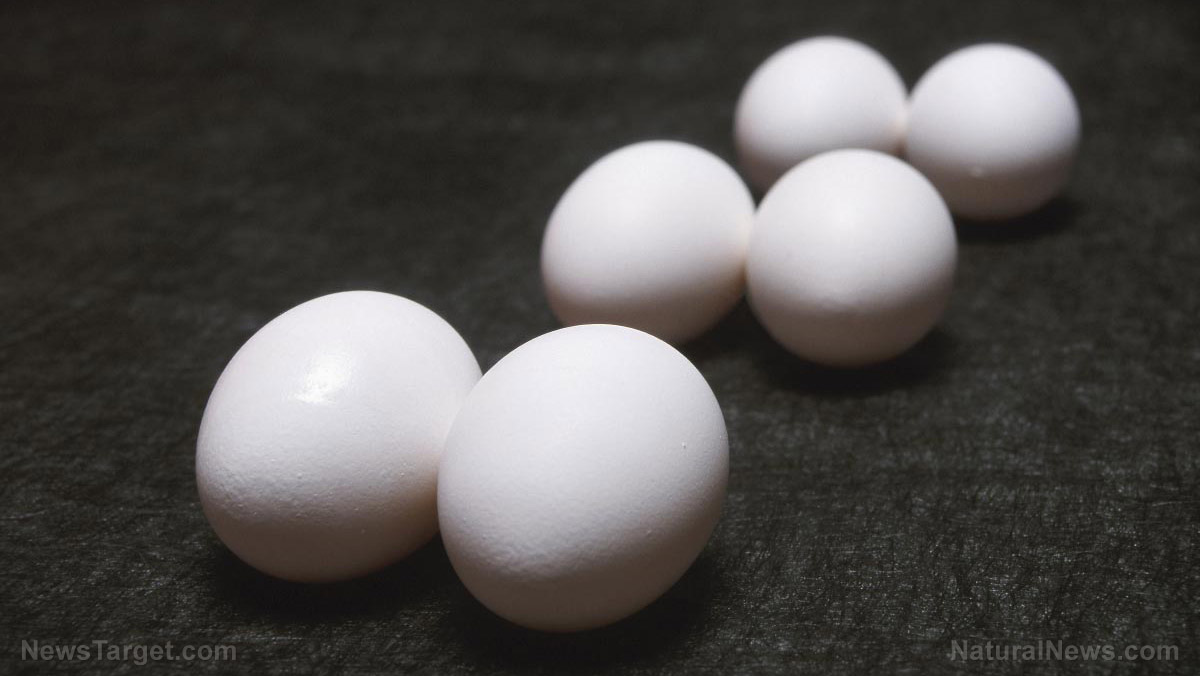Offering high-quality vitamins to essential minerals, eggs are truly “Nature’s multivitamin”
09/27/2018 / By Frances Bloomfield

When it comes to nutritional value, you’d be hard-pressed to find a more potent source of protein, vitamins, and minerals than eggs. One nutritionist believes that eggs are so powerful that they should be called “nature’s multivitamin”. This nutritionist, one Dr. Carrie Ruxton, has put out a report that could very well exonerate a food that’s since gained a bad reputation for its cholesterol.
In the report commissioned by the British Egg Industry Council (BEIC), Ruxton wrote that eggs are excellent sources of high-quality protein. In fact, a 2013 nutrient composition update showed that a medium-sized or 58 g egg contained 6.4 g of protein with all of the essential amino acids.
Eggs are also great sources of other vital nutrients. Ruxton wrote that two eggs would provide “100 percent of the European Nutrient Reference Value (NRV) for vitamin B12 and over 60 percent of the NRV for vitamin D.” While vitamin B12 helps reduce fatigue by normalizing energy metabolism, vitamin D boosts calcium absorption and maintain immune function and normal bone density. Ruxton also noted that eggs contain choline (which normalizes liver function and blood lipid metabolism) and selenium (an antioxidant that protects cells from oxidative stress). According to the DailyMail.co.uk, these nutrients aren’t present in a lot of other foods, making eggs truly unique in their vitamin and mineral count. (Related: Research: Eggs are a great source of protein, minerals and carotenoids.)
Despite this, there are still those who remain wary of eggs because of their cholesterol. “Like prawns and liver, eggs are high in cholesterol, although levels per 100g have reduced slightly since 1990. In the 1970s, it was believed that dietary cholesterol could push up blood cholesterol levels, creating a risk for cardiovascular health,” wrote Ruxton in the report, published in the June 2017 issue of Complete Nutrition. Those who would be negatively affected by the cholesterol in eggs, Ruxton noted, were individuals afflicted with hypercholesterolaemia, a genetic condition that leads to extremely elevated cholesterol levels. Otherwise, the blood cholesterol in the majority of people would remain unaffected by eggs.

Even diabetic patients would suffer no ill-effects from eggs. In her report, Ruxton referred to a 2015 study that compared a low-egg diet against a high-egg diet between 140 Type 2 diabetics; the researchers of that study found no significant differences between cholesterol levels of the two groups.
To conclude her report, Ruxton wrote: “Eggs are a low cost, yet high quality protein source, and should be recommended as a suitable and beneficial food for people of all ages – perhaps as Nature’s unique multivitamin. Certainly, when compared with other so-called superfoods, eggs provide a unique combination of protein, vitamins, minerals and fatty acids — at a lower cost to the consumer.”
Visit Superfoods.news for more news and stories on superfoods you can incorporate into your diet.
Sources include:
EggInfo.co.uk [PDF]
Submit a correction >>
Tagged Under:
disease prevention, eggs, natural medicine, nature's multivitamin, nutrition
This article may contain statements that reflect the opinion of the author





















